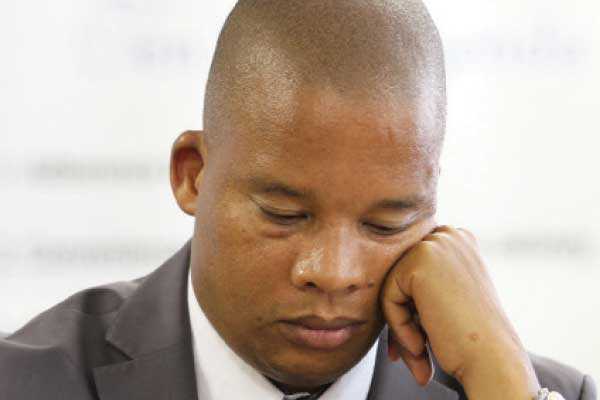Govt., Marubeni deadlocked
Botswana Guardian has reliably learnt that there is disagreement between Botswana Government and an Independent Power Producer (IPP) Marubeni Corporation who has been awarded a tender to build the multimillion pula Morupule B Units 5 and 6 power plants for an additional 300MW into the national grid.
At the centre of the agreement which has since put progress on a temporary halt is the reluctance by the Japanese and their associates to start construction over concerns that BPC will not be able to purchase their power hence they want government to give a sovereign guarantee something which government is not prepared to do. Instead government is willing to provide support guarantee.
The$800 million tender to expand Morupule B power plant was awarded to a joint venture between Japan's Marubeni Corporation and South Korea's Posco Energy last March. The latter is doing the Operations and Maintenance (O&M). Marubeni and the Engineering Procurement and Construction (EPC) contractor, GS Construction of Korea, were allegedly in the process of mobilising to begin construction of the power plant, which according to experts, was supposed to have started before the end of 2016 but were forced to put their plans on hold pending approval of their request.
The Japanese are believed to have made it crystal clear that they cannot go ahead with the contract unless government provides the sovereign guarantee given that BPC is not bankable and like many of its sister parastatals, is operating at a great loss. Minister of Mineral Resources, Green Technology and Energy Security Advocate Sadique Kebonang, confirmed the disagreement and that the two parties are working on an amicable solution. “We have signed the PPA in December. Initially the Japanese told us that they do not need any funding for the construction as they were to pay for everything with BPC just buying power from them. But the latest is that they are saying they need a sovereign guarantee from us because BPC does not have money.
“We told them as government that we are prepared to give a government support agreement, but not a sovereign guarantee in favour of “your bank”. They are still insisting on a sovereign guarantee which we do not understand as none of us either BPC or government is borrowing their money. It appears that they do not trust that BPC will be able to pay them. But in my view, the support agreement will be enough to enable BPC to pay them”. Asked when they will have reached an agreement, Kebonang said possibly by end of the month. “If we do not agree, then we should find ways of mitigating to reach an amicable solution”.
Marubeni Director, Sub Saharan Africa, responsible for investment to Power business in Sub-Saharan market Kazuaki Shibuya confirmed that they have signed the PPA as well as all permits and or licences needed. The permits include water use and generation, fuel supply agreement with Morupule.Asked when they were supposed to mobilise and be on site to start construction he responded, “within a few months”. His parting short was to confirm that Marubeni has obtained the Environmental Impact Assessment (EIA) for the project and that “We are searching for office space in Gaborone”, said Shibuya.
The BPC annual financial report
BPC annual financial reports for the year 2014-15 and 2015-16 confirm the fears by Marubeni. The 2015 final report confirms the bad financial state that the country’s sole power supplier finds itself in. The 2015 annual financial report indicates that BPC has a long-term debt of P8.345 billion. Further, that the Corporation’s loss before tariffs subsidy is P1.986 billion, while total revenues is P2.53 billion which means their revenue equals their loss.
Further, BPC operating cost is P4.6 billion. Although there is a great improvement, even the 2016 financial report released months outside the statutory requirement indicates that BPC is still running at a loss. The report shows the 2014/15 total comprehensive loss of P274.9 million to P99.6 million in 2015/16 financial year which is a positive improvement of P175.3 million on losses from previous financial year
Assets
When it comes to assets, the financial report shows that in the same year BPC’s total liability is P12.4 billion, and capital and reserves is P4.5 billion implying that the corporation is sitting on a huge liability. Government gave BPC a tariff subsidy of P2.3 billion in support of their operations in 2015 suggesting that under these circumstances, they are not a credit worthy customer for any power station developer who is going to sell power to them. The 2015 annual financial report indicates that BPC has a long-term debt of P8.345 billion.
Experts' view
Experts say that the closure of BCL has dented the confidence of investors on Botswana’s parastatals. But at the same time the fact that government was able to settle its debt obligations to BCL creditors has emboldened other investors dealing with local parastatals to demand government guarantee. They argue that the continuing closure of mines including BCL has not helped BPC situation as the mine is one of the major power consumers.






